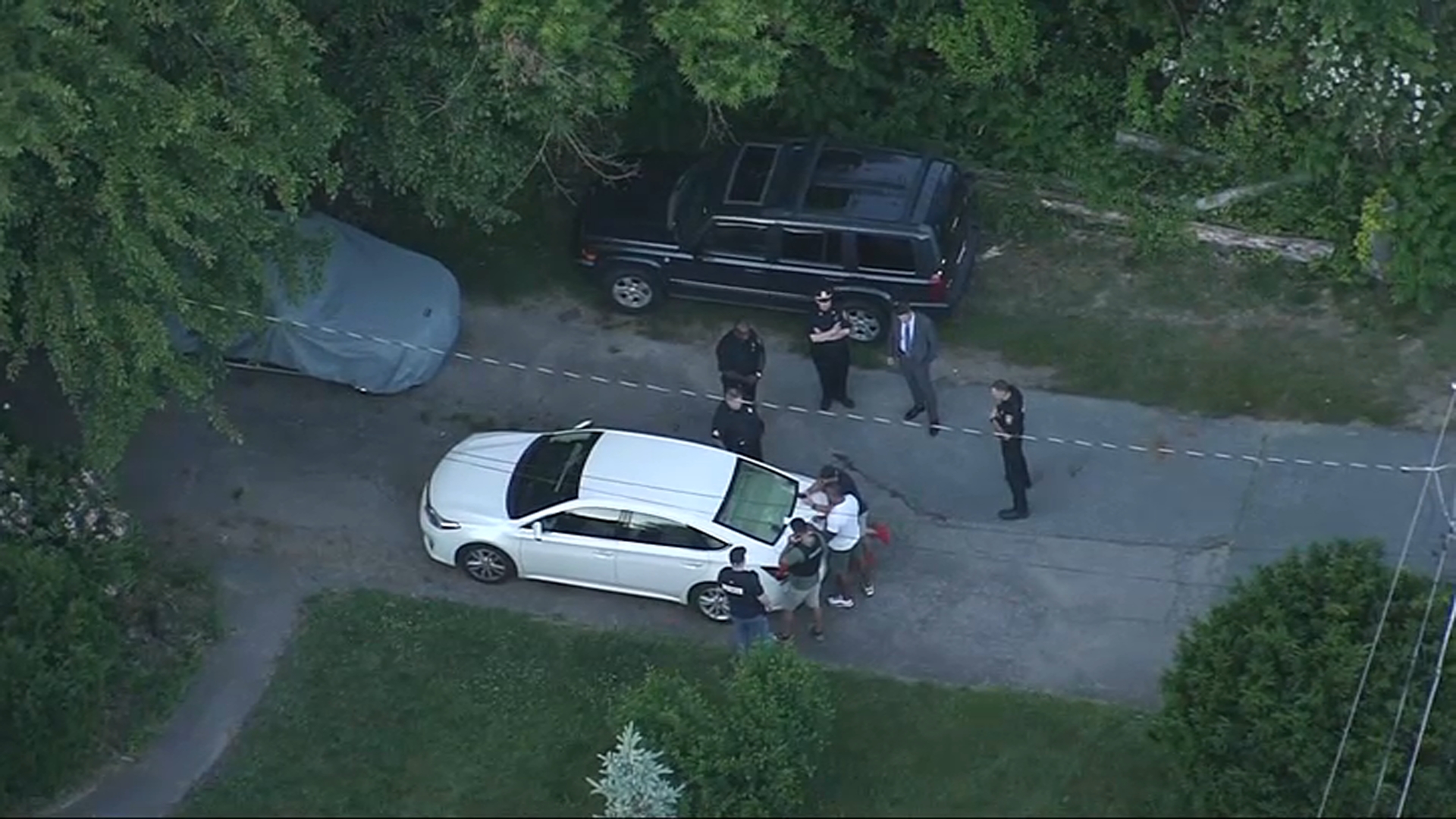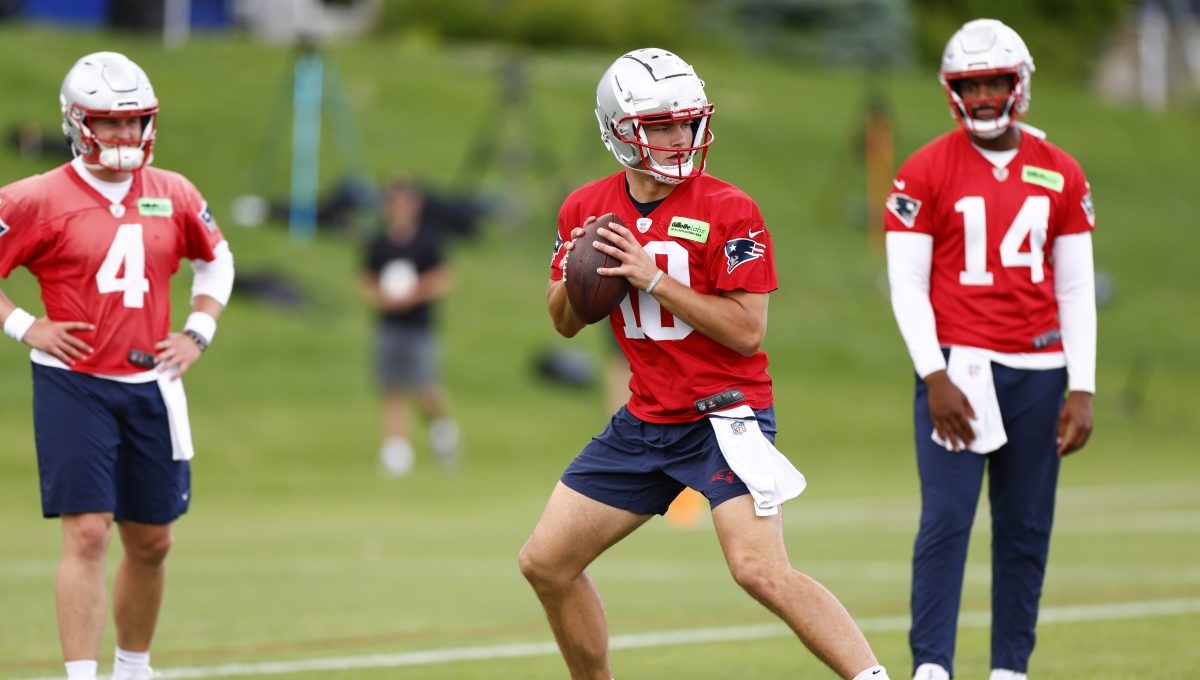(NECN: Josh Brogadir, Milford, Mass.) - Milford, Massachusetts.
A middle class town of about 25,000 people in the south central part of the state that has seen a rapid growth of immigrants over the past few years.
One group of South Americans has settled in Milford - following work and a place to raise families.
And they've brought some customs and tastes all their own as they've adjusted to the local way of life.
We're talking about the people of Ecuador.
And that adjustment has not always been seamless.

Local
For one thing the language barrier, most of these Ecuadorians speak Quechua - many also know Spanish.
But there are cultural and legal challenges in play, as well.
It's far from the Ecuadorian Andes of South America, only 307 feet above sea level in Metrowest Boston,
34 miles, as the crow flies, from the State House.
In Milford, Massachusetts, the newest immigrant influx over the past few years - the people of Ecuador, who are thousands of miles from their homeland.
This is now home.
"Yes, yes, it's a good place. It's peaceful. There aren't any real problems," said Teresa Gutierrez, who has lived in Milford for six years with her husband and daughter who attends public school in town.
Nixon Lalangui moved to Milford and opened Sabor Latino, what he's pretty sure is the Commonwealth's only Ecuadorian restaurant where a specialty called cuy is on the menu, what we know in English as guinea pig.
"Onion, garlic, what else (is in the recipe)?" we asked cook Jessica Brito.
"Cumin and salt" she said, mixing up a green paste.
Imported from Ecuador, then shipped frozen from New Jersey, the cuy is expensive, now up to $35 a guinea pig.
Like chicken or pork, each cuy is put on a spit, then placed in the rotisserie where it will cook for just under 3 hours.
"Here in Milford, there are a lot of people from my country, so we need some special food," Lalangui said.
Part of the significance here is that back in 2000 the census said there were fewer than 100 Ecuadorians living in Milford. Now that number is up to a few thousand, the second largest Ecuadorian community in the east next to Newark, New Jersey.
Sunday afternoon reveals an Ecuadorian cultural center of sorts in Milford, Fino Field, where hundreds of Ecuadorians play volleyball - 3 to a side with a soccer ball.
Among them is roofer Lizardo Guaman.
"We work all over the place, not just here," Guaman said.
Roofing is the dominant profession among men, no fewer than eight roofing trucks are in this parking lot.
And others are parked in driveways around town.
Women are mostly housekeepers and stay home to care for their children.
But why have Ecuadorians specifically chosen to live in Milford, this middle class town of about 25,000 in south central Massachusetts?
"The two reasons. It's work, and second, they need to be together," said Father Manny Clavijo, who is a priest at Saint Mary of the Assumption Roman Catholic Church.
And so in that regard it's a somewhat typical immigration story, one person comes and finds work, and then another follows, then another, and another, until you have a community.
Another center of Ecuadorian culture in Milford is St. Mary's where Father Manny says mass in Spanish at noon on Sundays.
Father Manny Clavijo and Silvia Franco help run H.E.A.L., Health, Education, and Advocacy for Latinos, a social service organization that's only been around a year and offers English classes, health awareness, and counseling.
"To help them to get to know the culture, to learn what society is demanding from them, just basic things, and helping them to have a better understanding of that," Father Manny said.
"You can not communicate as a consequence of the language barrier and you can not understand their traditions, you know, that generates animosity, yeah, but I don't think that's particular for this community," said Franco.
Indira Gumbe is H.E.A.L.'s program director.
"We started with what 20, 30, now we're over 300 families enrolled in our program. It's been really good," she said.
"Wednesdays and Thursdays I go to English class. I bring my kids. Thank God they take care of my children, so I can study," said Narcisa Mayancela, who moved with her family from Newark a year and a half ago.
That type of progress is promising, but other challenges can be traced to cultural differences.
"There is a funny case that made the newspapers about the killing of a pig in one of the houses," said Father Manny.
And you may remember last summer's water crisis, where coliform bacteria was found in the town's water supply and a boil order was in place for more than a week.
"Some of the people on the street and on the blogs dared to say that the bacteria got in the water because of Ecuadorians throwing a used bumper in the water," Father Manny said.
Plus there are legal issues: many of these men and women are here illegally - and fear they might be arrested - some have been pulled over for driving without licenses.
"We have a car and I don't have a driver's license. So, it frustrates me sometimes," said Guaman.
Still another challenge is the large number of Ecuadorians often living in the same apartments.
Arminda Marques is the owner of Isabel's market and the owner of a two family property.
She has to pay an annual inspection fee so the town can make sure the apartments are not overcrowded.
Born to Portuguese immigrants and raised in Milford her entire life, she says the arrival of Ecuadorians has changed the town.
We asked her if there is any kind of tension between Ecuadorians and other people in town that she notices.
"No, no, that I know of no. Those guys are great, you see them, you say hi to them. They're great people," Marques said.
Back to the cuy, which has been roasting for close to 3 hours and is finally ready to take out of the oven.
And why not give this delicacy from the Ecuadorean Andes brought here to Milford, Massachusetts, a try?
From the first bite to the last, it was delicious.



